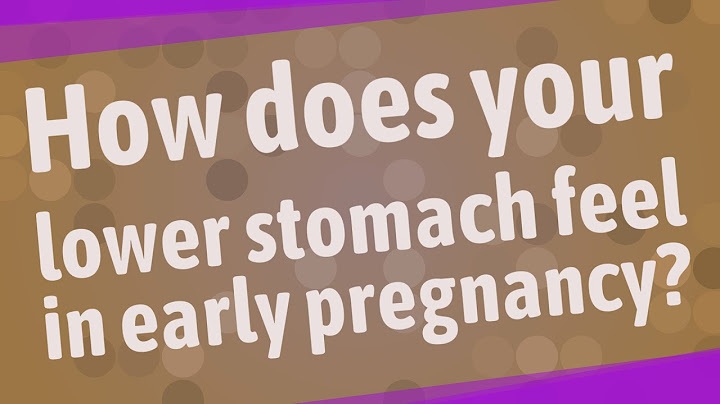The decision to have an abortion is a complicated one. Often women wonder how making that choice will affect their ability to have children in the future. Show Having an abortion doesn’t mean ending your chances of having a child. In most cases, the procedure doesn’t affect your fertility. You should still be able to conceive, have a healthy pregnancy, and give birth safely. There is also a question of how soon you might get pregnant again after your procedure. Do you need to use contraception right away to avoid another pregnancy? There is a lot of misinformation about abortions, so having the facts matters. It is important to understand your fertility, whether you are trying to get pregnant or want to prevent it. When is it safe to get pregnant after abortion? How Soon Can You Get Pregnant After an Abortion?No two women’s bodies work the same way, but the answer is soon for most women. Having an abortion restarts your periods and menstrual cycle. For most women, ovulation, happens onday 14 of their 28-day menstrual cycle. This indicates you'll most likely ovulate within a few weeks of having an abortion. In other words, even if you haven't had a period yet, it's possible to become pregnant again if you haveunprotected sex within a few weeks after the procedure. Of course, there are a variety of factors that can change things. For example, not every woman has a 28-day cycle. Some women may ovulate within a few days after the procedure. Also, how far you were into your pregnancy may be a determining factor. Pregnancy hormones might remain in your system for several weeks even though you are not pregnant anymore. This will delay ovulation and menstruation. How Long Should a Woman Wait After an Abortion?Two critical questions tend to come up for women after an abortion:
The doctor and staff will talk to you about when you can have sex again after your procedure. For most women, that answer is one to two weeks. However, you will need to wait at least one week to reduce your risk of infection. The decision to get pregnant again is also something to discuss with your doctor. There are many things to consider before making this choice beyond just when your body is physically able to create a baby. You will want to make sure you are emotionally ready for this significant life change. Also, if there were complications with a previous pregnancy or with your abortion, then that may affect this option. Potential complications with a surgical abortion include:
Often, there isn’t a reason to wait if the time is right for you beyond the week or two you hold off from having sex. Once your doctor gives you the okay and you feel mentally ready, you can start trying to get pregnant. Explore Our Post Abortion Services When Do You Need to Use Contraception After an Abortion?Some women consider a reversible but long-term contraception such as an intrauterine device (IUD) or a hormone implant after an abortion. The “Morning After” pill is something you would take if you should happen to have unprotected sex and want to avoid pregnancy. If you want to learn more about emergency contraception and what options are available to you, talk with an unbiased advocate at Avail to get the information you need in a safe space. Is There a Chance You Won’t Be Able to Get Pregnant After an Abortion?There are going to be risk factors with any surgical or medical procedure. But, in general, there is little to support the idea that abortion affects future fertility. Many women become mothers even if they have the procedure done at some point in their lives. The exact risk factors will likely depend on the type of procedure. With a medical abortion, you take a pill early in your pregnancy. There is little evidence to support that this process will limit your ability to get pregnant when you are ready. Surgical abortions require the removal of the fetus. Therefore, there are rare risks associated with this form of abortion. For example, you may develop an infection that damages the uterus. You might also have some scarring that impacts your ability to carry a baby, especially if you have multiple abortions. The key is to do everything possible to avoid complications. Abortion must be conducted in asafe and sterile atmosphere. Any abortion method that is not performed by a doctor is considered unsafe and can result in acute difficulties and long-term reproductive and health issues. Also, follow all recommendations provided by the clinic to avoid potential problems like holding off from having sex for a week or so. When to See A DoctorIf you decide you want to get pregnant again, it can’t hurt to get a check-up to make sure you are in the best possible shape. After an abortion, you should find a trusted doctor for an abortion wellness checkup. If you’re experiencing any heavy bleeding, discomfort, unusual vaginal discharge, or develop a fever several days after the procedure, this may be an indication of an infection. It’s vital to schedule an appointment as soon as possible to receive treatment since infections may cause infertility complications in the future. If you want someone to talk to about your abortion experience, make an appointment with one of our caring client advocates atAvail NYC. We have the resources and tools to help you, and offer an after-abortion support group. Talk with a Client Advocate Avail NYC exists to be a safe haven for women and men facing an unexpected pregnancy or seeking
support after an abortion. We are not a medical provider. |

Related Posts
Advertising
LATEST NEWS
Advertising
Populer
Advertising
About

Copyright © 2024 ihoctot Inc.


















